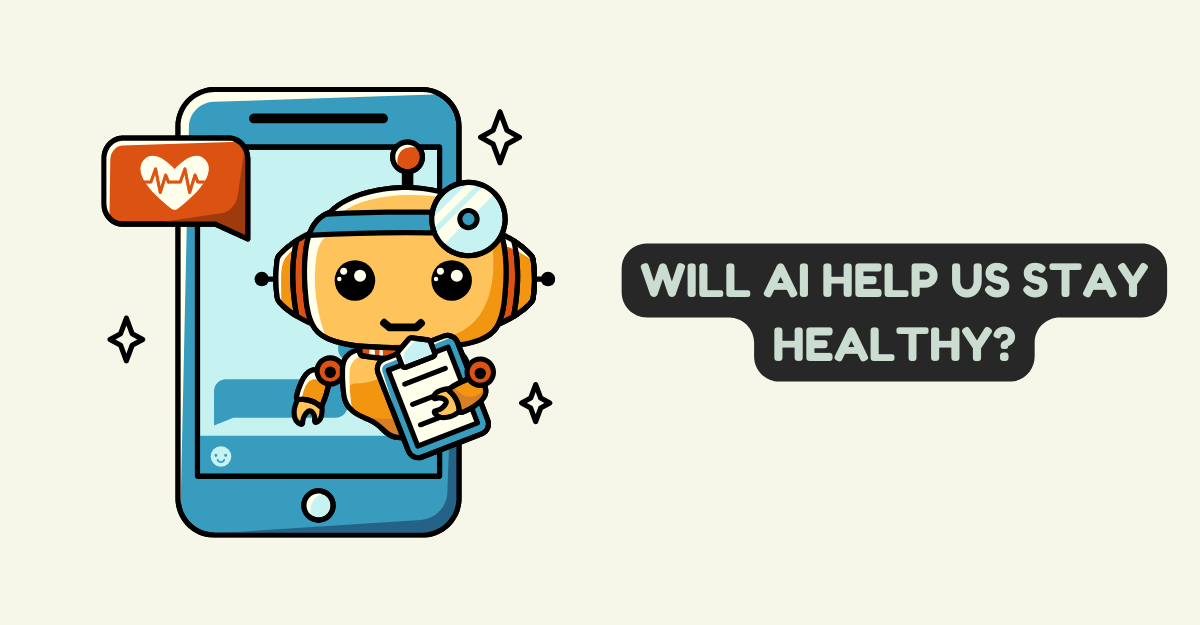
Will AI Help Us Stay Healthy?
The role of artificial intelligence in keeping us healthy is a topic of much debate. AI has the potential to revolutionize healthcare by offering personalized treatment plans based on individual genetics, lifestyle factors, and medical history. By analyzing vast amounts of data quickly and efficiently, AI can help detect diseases early, leading to more effective interventions and improved outcomes.
AI-powered devices such as wearable fitness trackers and virtual health assistants are becoming more common, empowering individuals to take charge of their health through real-time monitoring and personalized recommendations. However, it’s important to consider the ethical implications of relying too heavily on AI for healthcare decisions. While AI can augment medical professionals’ expertise and streamline processes, human oversight remains crucial in ensuring patient safety and ethical decision-making.
By harnessing the power of artificial intelligence, healthcare providers are increasingly able to offer personalized treatments and interventions that can improve patient outcomes. AI algorithms can analyze vast amounts of health data to identify patterns and predict potential health risks, allowing for proactive measures to be taken. Additionally, AI-powered virtual assistants and chatbots are revolutionizing patient care by providing round-the-clock support and guidance.
With the continuous advancement in AI technology, the future of healthcare appears promising. From early disease detection to medication management and remote monitoring, AI has the potential to transform how we stay healthy. By integrating AI into various aspects of healthcare delivery, we may see a shift towards more preventive approaches that focus on maintaining overall wellness rather than just treating illnesses. As we embrace this innovative technology, it is essential to ensure that privacy concerns are addressed and that human oversight remains paramount in making critical healthcare decisions.
How Is AI Used in Healthcare
AI is revolutionizing healthcare by enhancing diagnostics, treatment plans, and patient care. One key application of AI in healthcare is medical imaging analysis. Machine learning algorithms can analyze large amounts of medical images like MRIs and X-rays to detect anomalies or diseases with high accuracy. This enables early detection of conditions such as cancer, leading to timely intervention and improved patient outcomes.
Another vital use of AI in healthcare is personalized medicine. By analyzing a patient’s genetic data and medical history, AI algorithms can predict individual responses to certain treatments or medications. This allows for the development of tailored treatment plans that are more effective and have fewer side effects. Overall, the integration of AI in healthcare not only improves clinical decision-making but also enhances patient care through personalized and proactive interventions.
What Are the Benefits of AI in Healthcare
The integration of AI in healthcare has revolutionized the industry by enhancing diagnostic accuracy and efficiency. One of the key benefits is the ability of AI algorithms to analyze vast amounts of medical data quickly, leading to faster and more accurate diagnoses. This can result in earlier detection of diseases, ultimately improving patient outcomes and saving lives.
AI can streamline administrative tasks such as scheduling appointments, managing medical records. By automating these processes, healthcare professionals can focus more on patient care and spend less time on paperwork. AI-powered tools can help predict disease outbreaks, optimize treatment plans, and personalize patient care based on individual health data. Overall, the adoption of AI technologies in healthcare holds immense potential for improving quality of care, reducing costs, and advancing medical research.
Should We Be Concerned about AI Use in Health Apps and Organizations
Artificial intelligence (AI) has revolutionized the healthcare sector, offering immense potential for improving patient outcomes and optimizing operational efficiency. However, concerns regarding the ethical implications and data privacy issues associated with AI use in health apps and organizations have also emerged. Critics are wary of the potential misuse of sensitive patient data, lack of transparency in AI algorithms, and biases embedded in machine learning models that could lead to discriminatory practices.
Despite these concerns, it is crucial to recognize that AI technologies can significantly enhance medical diagnosis accuracy, treatment planning, and personalized healthcare delivery. Striking a balance between maximizing the benefits of AI in healthcare while addressing legitimate concerns about its ethical implications requires robust regulatory frameworks, transparent data governance policies, and continuous monitoring of algorithm performance. Collaborative efforts between technology developers, healthcare providers, policymakers, and ethicists are essential to ensure responsible AI integration in health apps and organizations.






